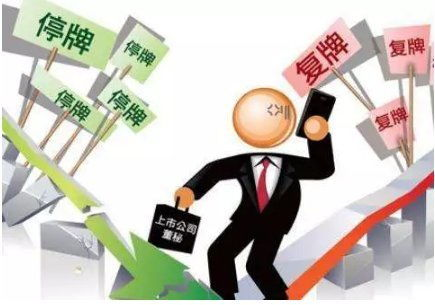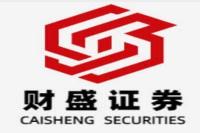Brazil and the World Bank: A New Era of Collaboration? (Meta description: Brazil, World Bank, G20 Summit, financial reform, international development, Peng Anjie, Fernando Haddad, IDA21 replenishment, knowledge sharing, personnel cooperation)
Whoa, hold on a second! The recent meeting between Brazil's Finance Minister Fernando Haddad and World Bank President Peng Anjie at the G20 summit in Rio de Janeiro sent shockwaves through the global financial community. This wasn't just a polite handshake and a quick photo op – this was a serious discussion about reshaping the future of international development. Think about it: Brazil, a powerhouse in Latin America with its own unique economic challenges and triumphs, sitting down with the head of one of the world's largest financial institutions. The potential implications are staggering! We're talking about billions of dollars in potential funding, significant reforms to a system that's been around for decades, and a potential shift in global power dynamics. This wasn't just another meeting; it was a pivotal moment, a chance to redefine how the World Bank operates and how it supports developing nations. Forget dry financial reports – this is a human story, filled with ambition, compromise, and the very real possibility of positive change on a global scale. We'll dive deep into the details of this meeting, exploring the key issues discussed, the potential outcomes, and what this all means for Brazil, the World Bank, and the world at large. Get ready to unravel the complexities of international finance, discover the hidden agendas, and understand the real-world impact of this high-stakes encounter. Let's get started!
World Bank Reform: A Critical Discussion
The meeting between Minister Haddad and President Peng Anjie wasn't just a casual chat; it was a crucial opportunity to address the urgent need for World Bank reform. Let's face it, the global financial landscape has changed dramatically since the institution's inception. The old models, frankly, are starting to look a bit dusty. What worked fifty years ago might not be cutting it today. The discussion likely centered around modernizing the Bank's operational structure, improving its efficiency, and ensuring its resources are allocated effectively and equitably. This involves streamlining processes, enhancing transparency, and perhaps even rethinking the voting system to reflect the changing global power balance. Imagine the complexities: balancing the needs of developing nations with the interests of established economies, navigating political sensitivities, and ensuring financial stability. It's a herculean task, and one that requires a delicate balance of diplomacy and decisive action. We’ll explore the potential reforms and their implications in more detail later. This is where the rubber hits the road, folks.
International Development Association (IDA) Replenishment: A Lifeline for Developing Nations
One of the most significant topics on the agenda was the IDA21 replenishment. This is essentially a massive fundraising effort to provide crucial financial support to the world's poorest countries. Think of it as a global lifeline, providing critical resources for essential projects like infrastructure development, healthcare initiatives, and education programs. The success of IDA21 hinges on the contributions of member countries, including Brazil. Brazil's participation is not just about financial contributions; it's also about its commitment to global development and its role as a regional leader. This involves a careful consideration of Brazil's own economic priorities while acknowledging its responsibility to support less developed nations. This isn't just about numbers; it's about impacting millions of lives. The negotiation involved high-stakes diplomacy and a keen understanding of global economics.
China and the World Bank: A Partnership for Progress?
The meeting also addressed the growing relationship between China and the World Bank. With China's increasing global influence, its collaboration with the World Bank holds immense potential for both institutions and for developing countries. However, it also presents potential challenges, requiring careful navigation of differing economic philosophies and political priorities. The discussion likely touched upon opportunities for collaborative projects, knowledge sharing, and potentially even joint financing of development initiatives. The key here is finding a balance between collaboration and competition, ensuring that the partnership results in meaningful progress for developing countries without compromising the integrity or independence of either institution. This is where experts in international relations, economics, and political science come into play.
Personnel Cooperation: Building Bridges Between Institutions
Beyond the financial aspects, the meeting also explored opportunities for personnel cooperation. This involves exchanging experts and professionals between Brazil's financial institutions and the World Bank. This type of collaboration fosters knowledge sharing, strengthens institutional capacity, and ultimately leads to better-informed decision-making. The exchange of talent is crucial for maintaining a high standard of financial management and development expertise within both organizations. Think of this as a vital component of building a strong and mutually beneficial relationship, enhancing the capabilities of both entities.
Brazil's Role in Shaping the Future of Global Finance
Brazil's participation in this high-level meeting underscores its growing influence on the global stage. Its strategic location, economic strength, and commitment to multilateralism have positioned it as a key player in international development finance. The meeting provided Brazil with a platform to advocate for its priorities, ensuring that the World Bank's policies and programs benefit developing countries like itself. This signifies Brazil’s ambition to be a leading advocate for equitable global development and a strong voice in shaping the future direction of international financial institutions.
Frequently Asked Questions (FAQs)
-
What were the main topics discussed during the meeting? The meeting covered World Bank reform, IDA21 replenishment, China's role in the World Bank, and personnel cooperation.
-
What is the significance of IDA21 replenishment? IDA21 represents a significant funding opportunity for developing countries, providing crucial resources for essential projects.
-
How does China's involvement impact the World Bank? China's growing influence presents both opportunities and challenges, requiring careful navigation of differing priorities.
-
What is the purpose of personnel cooperation between Brazil and the World Bank? It aims to foster knowledge sharing, strengthen institutional capacity, and improve decision-making.
-
What is Brazil's role in shaping the future of global finance? Brazil's participation in such high-level meetings highlights its growing influence as a key player in international development finance.
-
What are the potential outcomes of this meeting? Potential outcomes include significant World Bank reforms, increased funding for developing countries, and strengthened partnerships between Brazil and the World Bank.
Conclusion
The meeting between Minister Haddad and President Peng Anjie marks a significant moment in the ongoing evolution of the World Bank and its relationship with key developing nations. The discussions held represent a crucial step towards a more equitable and effective global financial system. The success of these initiatives hinges on continued collaboration, transparency, and a clear commitment to addressing the needs of the world's most vulnerable populations. The impact of this meeting will undoubtedly be felt for years to come, shaping the landscape of international development and global finance. While the specifics of agreements may remain confidential, the very fact of this high-level dialogue signals a new era of potential collaboration and reform. The future is uncertain, but one thing is clear: the stakes are high, and the world is watching.



